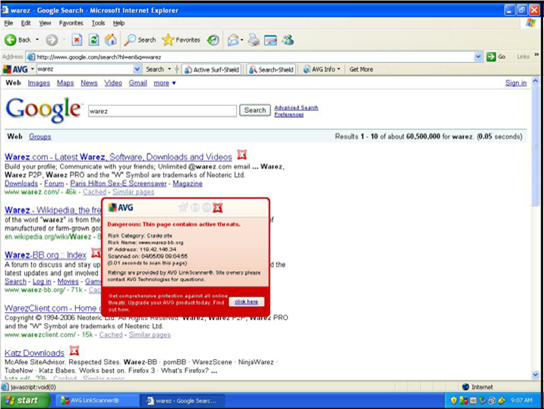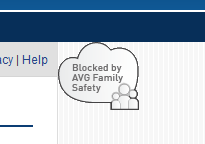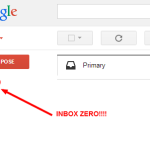In a move towards going paperless and the “virtualization of the school”, our administration issued what I consider to be an extremely comprehensive “Technology Handbook” to the parents and students– accessed as a downloadable PDF from a password protected site emailed directly to the parents. Of course.
It covered usage, expectations of privacy, site restrictions, limits, and online etiquette. It even went as far as detailing what is and is not an acceptable way to send an email. For example, writing in ALL CAPS = threat and it will be handled as such… Our school doesn’t mess around.
Both the parents and the students were expected to read, then sign a technology contract promising to adhere to the rules (and consequences) set up by the school. Not only does this ensure that every family is aware of the rules, it also conveys the expectation that the parents be involved in teaching their children how to handle themselves online.
Now, who’s teaching the parents?
A recent study published by global online security leader, AVG , reveals that users are not as vigilant about their online habits as they should be. Of the more than 8,000 Americans surveyed with Internet access in their home:
- 23% don’t back up the data on their PC
- 38% admit to sharing online passwords with at least one other person
- 41% never run a manual anti-virus scan to ensure the computer is virus free
- 67% don’t use an identity monitoring service
Meanwhile children are surpassing parents in terms of the adeptness, tenacity, and speed in which they absorb technology. In their ongoing “Digital Diaries” series, AVG have been studying how technology is shaping childhood in the Western World.
The first study revealed that 92% of children have an online presence by the age of two. The second installment indicated that toddlers are learning tech skills like using a mouse and playing computer games, before life skills like tying their own shoes, riding a bike, and swimming.
The third and latest study called “Digital Playgrounds” came out this past Spring and explored young school-aged children’s social interactions online. Nearly half of eight-to- nine-year-olds [surveyed] regularly talk to friends via computers and mobile devices, thereby showing that our children are more socially connected than ever before.
Sadly this increased connectivity can lead to unwanted behavior. The Digital Playground research also shows that one in six six-to-nine-year-olds and one in five eight-to-nine-year olds have already experienced what their parents consider inappropriate or aggressive behavior online. When parents were asked if their family devices were armed with parental controls or Internet safety, only 56% were certain that their family computers had such tools and less than half were unfamiliar with the sites their children frequent online.
This begs the question, are parents doing enough to educate their children about online safety when they may not even be educating themselves?
Keenly listening to the needs of parents (as well as businesses and all other online users), AVG has developed a comprehensive suite of products to provide peace of mind and security while on the Web. Here is an overview of the products I use to protect my family and my reputation online:
AVG Internet Security 2012
Having offered free virus protection with AVG Anti-Virus over the years, they just launched a more complete security package– AVG Internet Security 2012.
AVG Internet Security 2012 ($54.99) was built with the user in mind. It helps speed up your computer’s performance by protecting it from online threats, offering advice on optimizing your memory space, and accelerating your download speeds.
It operates in a way that does not interfere with your normal activities. The scans operate when you are away from your computer. It also knows when you are gaming and ensures that the security operates in the background only, leaving you free to play without pop-ups, alerts, or other distractions.
The AVG Firewall prevents inbound and outbound attacks. Its Identity Protection secures personal content, such as account numbers and passwords that you enter online, so you can shop, bank, and anything else with peace of mind.
Link Scanner®
Link Scanner® Search-Shield and Link Scanner® Surf-Shield come standard with AVG Internet Security 2012, but they deserves to be called out on their own. These features provide full web-detection by actively checking incoming links in real-time before you visit them. It alerts you to which sites are safe and which are possible threats. Then, it blocks sites which it knows to carry suspicious activity like phishing schemes or viruses.
Personally…. I would purchase AVG Internet Security 2012 JUST for these features alone.
Family Safety
Family Safety ($0.99) is an add-on to AVG Internet Security 2012 and provides different levels of protection for each member of your family.
The direct result of AVG’s in-depth research into the way children use technology and the Internet, Family Safety was created as a tool for parents who may not be as fluent in “Web”.
Not only does it allow the parents to set limits and tailor offerings and controls for each child, it also offers a learning opportunity for children about what is and is not a potential danger.
- Set unique profiles and unique log-ins for each member of your family based on preferences or their age or maturity level. Enable Block, Warn, or Monitor modes, and adjust them as your family’s needs or understanding of the Web evolve.
- Prevents threats from Cyber-Bullies and Predators with key-stroke technology to monitor your child’s activities in chat-rooms and on social networks. If it spots words, phrases or language that are known to be used to victimize children online, it will notify you immediately as it is occurring.
- Block questionable materials from entire websites or just the ads featured on the safe sites that your kids love. You can protect your children from inappropriate material by enabling 58 categories of protection spanning over 60 million websites.
- Know what your kids are searching by monitoring searches on popular engines like Google, Yahoo! and Bing and filtering their search terms. Family Safety will show you how!
- Schedule and set limits on time spent online by allow parents to set “computer down times” when kids ought to be sleeping, studying, or home alone . It will bar them from logging-on during those times. Brilliant!
AVG Mobilation™
In 2009, BrandWeek reported that “one out of every seven minutes of media consumption takes place on a mobile device”. At the time, there were 63 million mobile web users in the United States alone and a majority of those polled for this research were completely satisfied with the browsing experience on their smartphones.
According to On Device Research, twenty-five percent of mobile web users in the US are “mobile only”- as in they do not, or very rarely also use a desktop, laptop, or tablet to access the Web. With smartphones becoming much more commonplace, online threats are “mobilizing” as well. The very same threats that are a problem for home computers – viruses, malware and identity theft – are also threats to your mobile device.
The best way to protect yourself is with AVG Mobilation™. The *free version* scans apps and web links for possible viruses, protects your passwords and personal info, prevents your phone from getting hacked, and finds your phone should it ever be lost or stolen. The Pro Version ($9.99) offers backup in addition to these other great features.
This post is sponsored by Splash Creative Media as a part of the Fill the Backpack campaign. AVG is a proud and fantastic sponsor of Fill the Backpack. All thoughts and opinions expressed are my own, and do not reflect those of Splash Creative Media or AVG.



 Follow
Follow

























Great post, Grace! We all need to be more vigilant about monitoring our children’s (and our own!) online behaviors!
Yes I agree Mary! Gr8 post Grace we can never be to sure who’s online